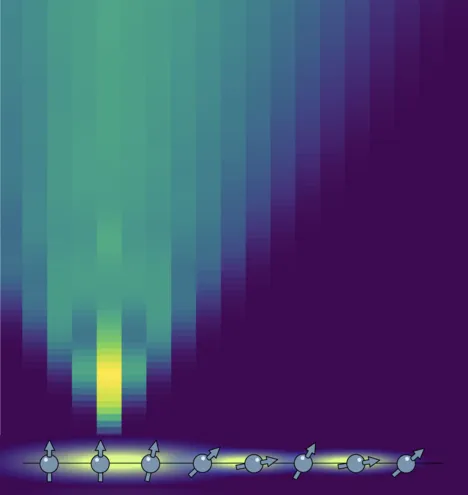Non-Equilibrium Dynamics of Quantum Many-Body Systems

Lecturer: Michael Knap
Teaching Assistants: Julian Boesl, Johannes Hauschild, Fabian Pichler, Caterina Zerba
Lectures:
Mon 10:15-11:45, HS 3344
Mon 8:30-10:00, HS 3344
Practicals: Thu 16:00-18:00
This course provides an introduction to the fascinating phenomena arising from the non-equilibrium dynamics of quantum many-body systems. For quantum systems which are driven far from their thermal equilibrium all scales, from low to high energies, are relevant. Despite this apparent complexity, over the recent years several universal concepts emerged in the theory of non-equilibrium quantum states. The goal of this course is to introduce modern concepts of non-equilibrium dynamics, including thermalization, random circuits, and entanglement dynamics and connect them to recent experimental efforts with quantum information processors and quantum simulation platforms. In order to elucidate these concepts the practical exercises include both analytical and numerical problems.
Outline:
- Introduction (recap of QM, quantum walks, overview of generic quantum dynamics)
- Quantum Thermalization (subsystem thermalization, random matrix theory, eigenstate thermalization hypothesis, thermalization dynamics, role of conservation laws)
- Stochastic dynamics (correlation functions, damped Harmonic oscillator, diffusion, Master equation, Langevin theory, fluctuation-dissipation relation, Fokker-Planck equation)
- Hydrodynamics (symmetries, long-wavelength description, fluctuating hydrodynamics, Onsager relations, effective field theory, classical cellular automata, equivalence of Haar random circuits and classical cellular automata for two-point correlators, anomalous diffusion and Lévy flights)
- Boltzmann equation (introduction, hydrodynamics from kinetic theory)
- Periodically driven systems (time ordering, Floquet theorem, Kapitza pendulum, high-frequency expansion, Floquet engineering, new phases of matter without equilibrium analogue)
- Disordered many-body systems (Anderson localization, adiabatic theorem, Landau Zener effect, resonances, ac conductivity, phenomenology of many-body localization, entanglement dynamics)
- Prethermalization phenomena (quantum quenches and periodic driving; Mori formalism)
Practicals
The practicals will be in part numerical and in part analytical. Problem sets and solutions will be provided on Moodle.
To get a bonus for the final exam (planned to be oral), hand in 80% of the exercises.
Exam
The exam is planned to be oral.